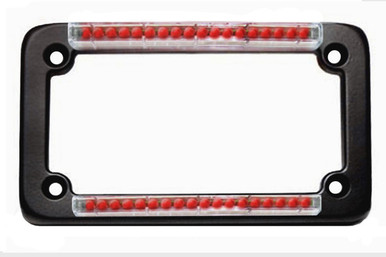I have that same flasher on 2 of my cars with the 3rd brake light LED and on the 94’s top case LEDs. It does get you noticed (in a very good way) so those not paying attention don’t hit you. On the 300ZX which has incandescents, I used a different flasher I got on Amazon, so it’s 4 flashes then solid on.
By the way, with the bikes, I removed the wiring from the rear recess of the bikes, fillet the needed wire to expose the core, then wrapped the wires from the license plate frame and the top case to the now uninsulated part of the wire, and used electrical tape to close each connection. It came out clean and except for the recent top case installation, they have been taped like that for years and have not failed. Soldering the connections would be a better idea, but It’s tough to get a soldering iron in a tight space. For the main tail lights, I use the Kisan Tailblazers with the halogen bulbs with which they come (gotta use proper grammar).
The only issue with the radius license plate frame (other than the very high cost) is the fact that it’s designed for an H-D fender, so it’s curved. A flat frame would be needed for our bikes.







